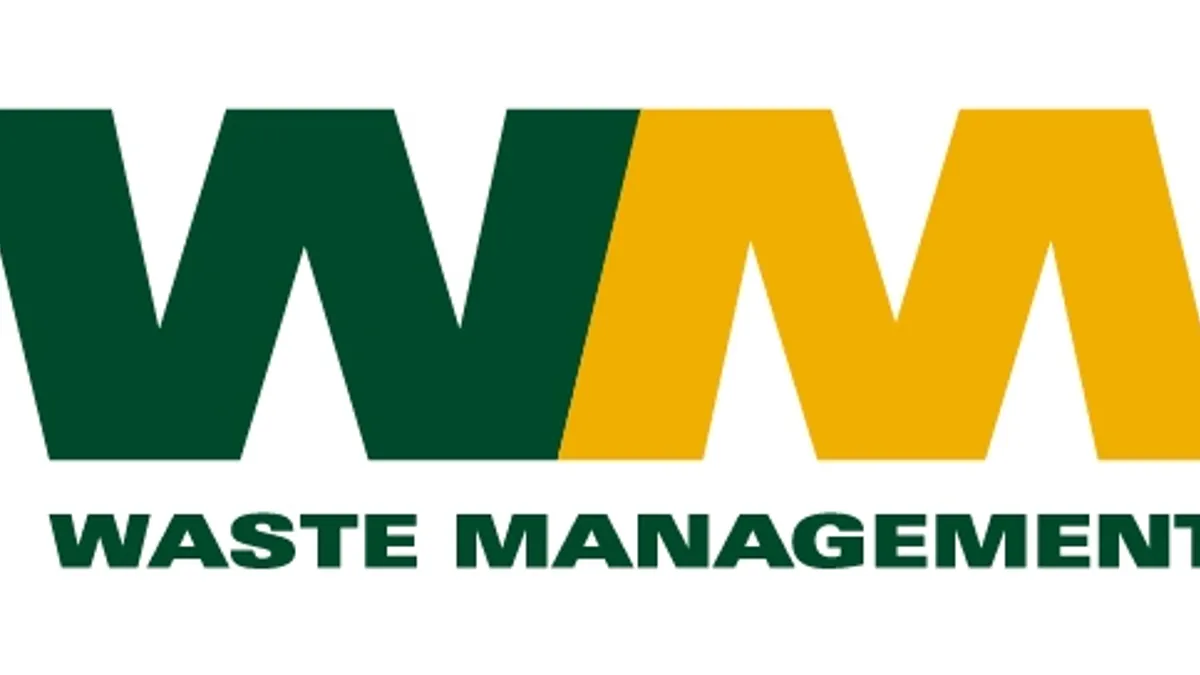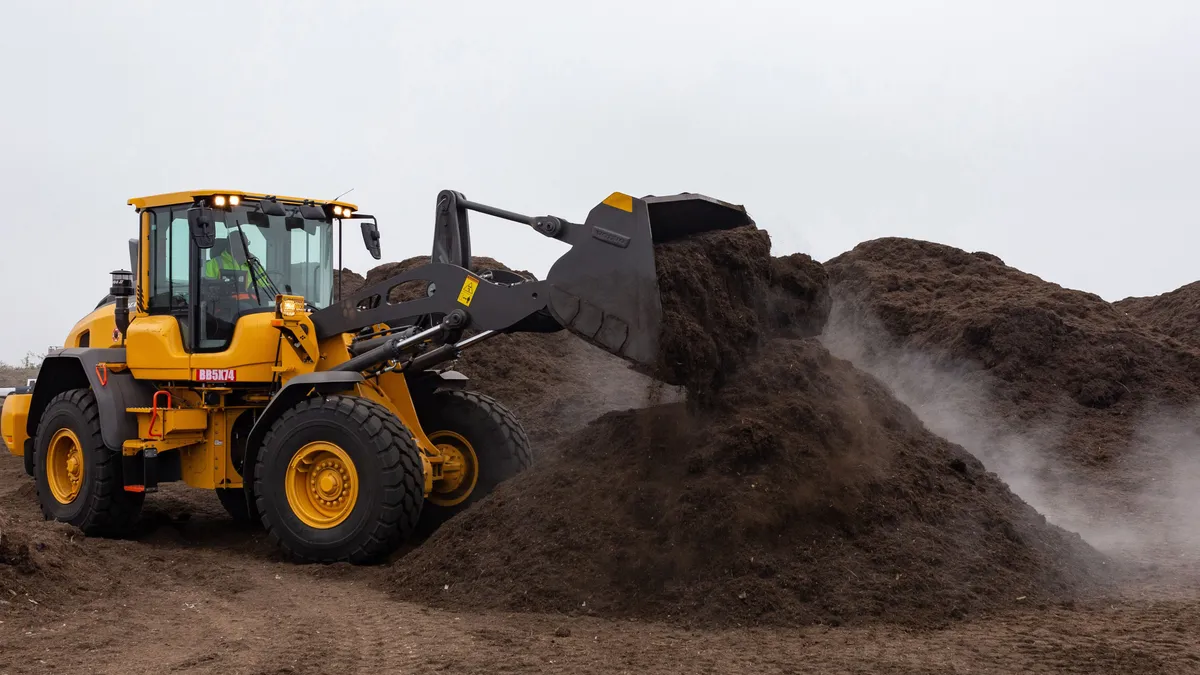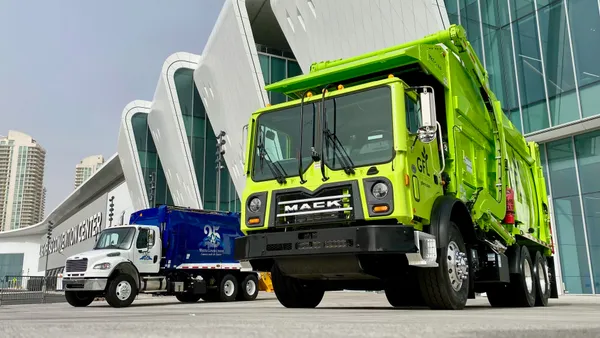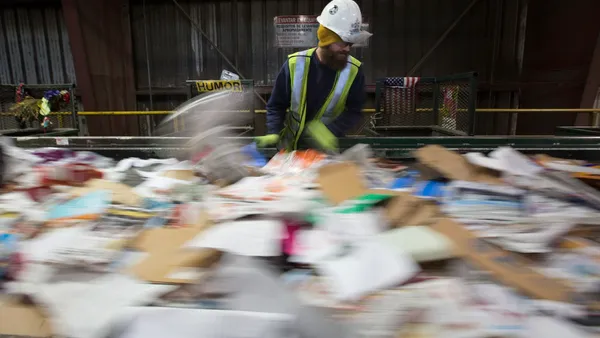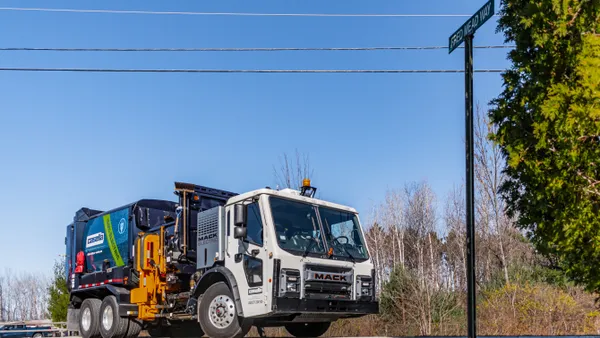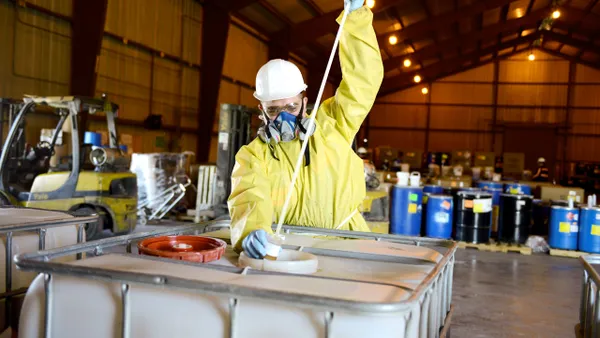Dive Brief:
- CNBC reported this week that Waste Management has closed 21% of its recycling facilities (totaling 30 facilities) over the past two years, with no intentions to open any new ones—however a few more may close in the near future. The MRF closures are a result of the overall recycling industry struggling to stay profitable.
- Waste Management's Newark Area Vice President Tara Hemmer told CNBC that a bale of aluminum cans that used to sell for more than $2,000 per ton now sells for $1,100 per ton. Due to low oil prices, it is simply more cost-effective for manufacturers to make virgin materials like plastic than to purchase recycled materials.
- Waste Management CEO David Steiner told CNBC that Waste Management's weighted average cost of capital is about 8%, however they're earning less than 1% on recycling. "We all know that if you're earning less than 1%, you're not making your cost of capital. We need to find a way to make it more efficient, but also to meet our customers needs, and that's what we've been doing for the last three years," he said.
Dive Insight:
CNBC explained that, while Waste Management has stuck through the low profits of recycling in many scenarios, the company has had to sacrifice recycling when the loss became too great—a situation that was almost a reality in Houston. In order continue recycling with the city, Waste Management had to stop services for glass recycling, as it was costing too much money.
"Over the last 3 years when we really saw the downturn, it sort of fluctuated from slightly profitable to slightly unprofitable. As we've seen the commodity prices come down, we've had to take cost actions. We have to shutter some plants. We have to be more efficient in our processing. If we can do that, we can continue to make money. But we could always use a nice rebound in the commodities market, that's for sure," said Steiner to CNBC.
This isn't the first time Steiner talked to CNBC about the downfalls of recycling. In November, the CEO told the network, "We’ll always be the largest recycler, but we learned how to manage through bad times ... I don’t want to get hurt by recycling." Unfortunately with the loss of dozens of recycling facilities, it looks like the company already has.



